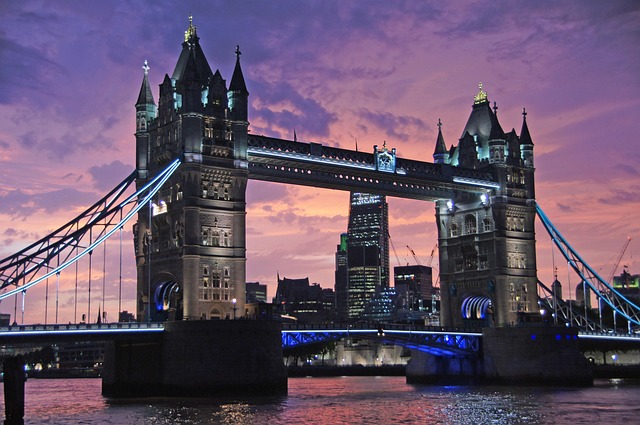 More and more people are seeking to escape the distorted worldview of our times. An increasing number do not feel like they belong. Above all, it is people outside the system, those who are being parasitised by the nobility and its clients, i.e. the plebeians. Ordinary people who work and pay taxes.
More and more people are seeking to escape the distorted worldview of our times. An increasing number do not feel like they belong. Above all, it is people outside the system, those who are being parasitised by the nobility and its clients, i.e. the plebeians. Ordinary people who work and pay taxes.
They are not necessarily interested in politics, but they know when to draw the line, and when they have had enough. Although the fuse may be different in different countries. They are people of reality, their philosophy is that of common sense, their taste and lifestyle are considered low. The nobility mocks them, laughs at them and despises them, and so do the clients.
Somewhere along the narrow path of hardship, however, the plebeians decided that enough was enough. And political populism suddenly showed its unshaven, red-headed face. It is best exemplified by Nigel Farrage, Viktor Orban and, to some extent, Donald Trump. These are political movements outside the rules and frameworks of the establishment, operating outside cathedrals and blue churches. They don’t follow the rules, they don’t follow the directives and procedures. We are dealing with a sometimes wild and boisterous bunch of people, but note that the more we analyse the phenomenon, the more traces of logic and reason we will find.
For populism is a syncretism of our three old fears. It is a well-balanced mix of three ideological orientations. It is not an ephemeral compromise or a stopgap measure, no, it is a living consensus.
Populists are against globalisation, the dominance and influence of big business in politics and culture. They see a world conspiracy of wealthy people meeting in Davos and Bilderberg, drawing up plans for the world’s development in the coming years. There is a natural suspicion of corporations that have grown too big and operate with the same authority as states. This suspicion they share with the socialists of old. Another thing they share with the left is the courage to gather in the streets and protest loudly.
At the same time, they embrace many conservative values, they are passionate about the nation and especially the homeland. They cherish family, relatives and friends. And there has been a revival of Christianity. It may not be a deep and heartfelt faith, but there has been a slow move away from strict atheism. Religion is becoming more of a unifying glue. A cultural Christianity, you might call it. In addition, it is not ashamed to emphasise traditional values and a more reactionary view of society.
Last but not least, they also embrace a liberal economic model. They realise all too well that taxes must be cut to boost the economy, that deregulation is necessary, that red tape and bureaucracy must be eliminated. The swamp must be cleared in order for citizens to regain their economic freedom. But economic freedom is not absolute as it is with neoliberals. Nihilism is gone. If we take free trade as an example, it is seen more as an ideal, and not as an absolute and inviolable spell.
Populists have picked out the essential pieces of our old ideologies and put them together in a workable way, where the views do not compete with each other, but instead complement each other. If a populist ideology tended more towards one ideological direction, it would cease to be true populism and become left-wing, liberal or conservative. Perhaps it is the balance of this trinity that forms the core of populism?
As for culture, they have reintroduced realism there too. They are sceptical of the thesis of the equal value of all people. And this can make the nobility and the clients scream loudly. But our boisterous populists do not believe in the theory of human dignity for the simple reason that it is not true. We do not ascribe equal value to all human beings, we love our mother more than a homeless person or a stranger. It is not more difficult than that. The false value base is dead. And it died because it was false. We value people differently, and always have. Why pretend?
The elite often accuses populists of being racist and xenophobic. It is a recurring theme in debates and discussions. Here, too, it is the newly discovered realism that haunts them. Populists argue that all peoples have a right to their culture in their home regions. And the idea is perhaps not so controversial when we talk about the Sami, Indians and Aborigines. It might be controversial when we talk about white Europeans, but it doesn’t really matter whether people find it controversial or not. Everyone has a right to their culture and their homeland. The plebeians want nothing to do with special legislation.
The authorities have abandoned the idea of justice, embracing identity politics, special treatment, quotas and special legislation. This is what used to be called racism in the old days, before the world went mad. But now it is the anti-racists who have become racist and want to treat people differently. Don’t even try to grasp the logic, it makes no sense, we are seeing cultural and intellectual degeneration at a particularly high level.
That’s why plebeians and populists have become increasingly prominent in politics and public debate. When everyone leaves reality, there will of course be a gigantic vacuum that needs to be filled. And it should be filled to some extent with truth, facts and credibility.
Now, of course, even our friends, the populists, occasionally cut corners with the truth, but not nearly to the same extent as the nobility, whose lies are monumental. That is an important difference. However, we will not find absolute truth here or anywhere else. It is enough to land somewhere close to the truth, as opposed to missing it altogether and ending up in the sea and drowning.
This is how the carbon hypothesis became a truth. No, I won’t put on my tinfoil hat any more than necessary, but note the following. That carbon dioxide in the atmosphere is contributing to climate change is a hypothesis, it has never been proven by experiments or the like, to my knowledge. That the earth’s temperature is changing due to human influence is also a hypothesis. The climate has shifted a lot over the millennia, as shown by proxy data from ice cores. How do we distinguish between natural and unnatural changes? What is normal? If we place the measurement point 100,000 years back in time, most things appear normal, if we place the measurement point 30 years back in time, we get something completely different. The question is how two hypotheses suddenly become a hard truth, and a truth that is supposed to scare people, create panic and anxiety. You don’t even have to agree with me to understand what I mean.
The plebeians are tired, they have equipped themselves with pitchforks, torches and crossbows. Surely there must be some moderation? What we are seeing is a paradigm shift. Populism is (at best) a syncretism, a patchwork of essential but redacted parts of Western essential thought. This is what makes it so effective.







